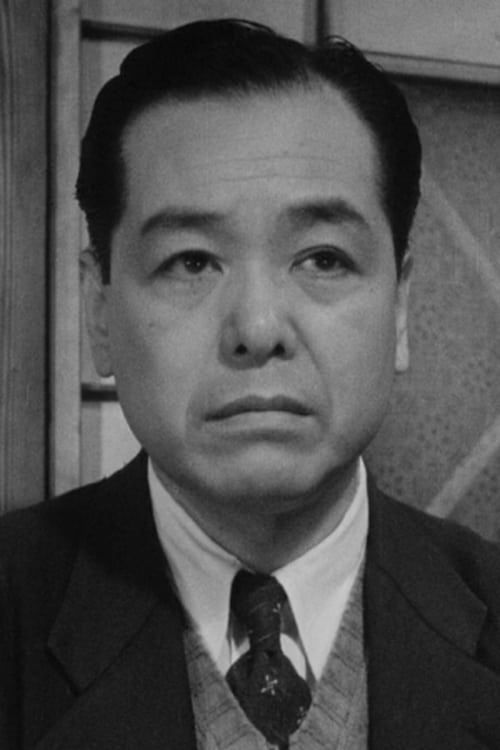Shinichi Himori
Nacimiento : 1907-01-10, Tokyo, Japan
Muerte : 1959-09-12
Historia
Shinichi Himori (10 January 1907 – 12 September 1959), born Kazuo Moriyama, was a Japanese film actor. He appeared in more than seventy films from 1925 to 1959.

Live-action adaptation of Yoshiro Kato’s manga.

Bonji-ya Wahei
Classic kaidan ghost story from the Edo period

Tane, the lady proprietor of an inn for amorous couples, lives there with her three children. When her eldest daughter loses her fiancé due to the fact her mother is a mistress, her despair drives her to become a cabaret hostess.
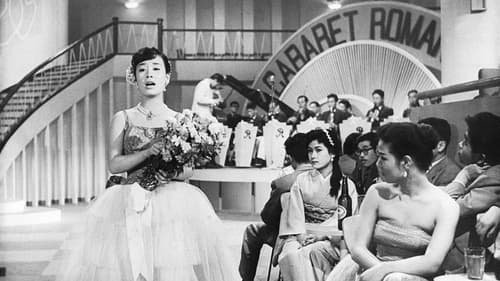
Daisaku
The cabaret «Romance», run by Masami Daisaku's father, is experiencing financial difficulties, and Masami is betting on changes and asks singer Hibari Misora to perform. Musical youth comedy with young actors, passion, funny songs and laughter. Hibari Misora appears as herself.

Third sequel to "Story of Second Class Private".
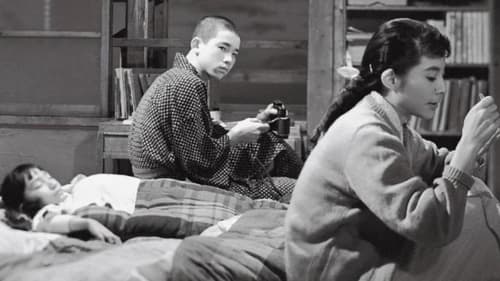
A coming-of-age story portrayed as the loss of all youthful illusions. Sixteen-year-old Yoichi dreams of becoming a sailor. His parents are fishmongers, and Yoichi lives together with them and his four siblings in cramped living conditions. His beloved younger sister is given to a wealthy, childless uncle; his best friend moves away; the girl he fell in love with from afar is with someone else: little by little, Yoichi loses all the people that are important to him.
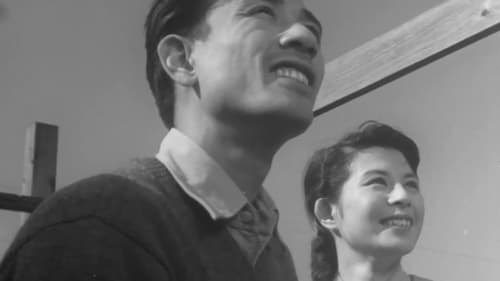
This drama of middle-class life in postwar Japan tells the story lower-middle-class workers in the city of Kawasaki, and their troubles and travails.

An adaptation of the Kawabata Yasunari short story.

Machiko and Haruki’s drama continues. Two meet again in Hokkaido only to be separated again.
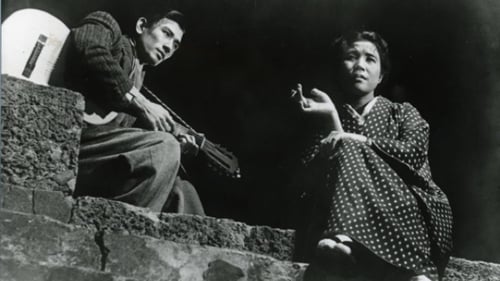
At the close of the war in Japan, a widowed mother makes every possible sacrifice to bring up her ungrateful son and daughter who are unimpressed with their poor standard of living at home. They gradually reject her in search of the material comforts that working as a maid cannot provide. The mother's despair becomes interminable.

Follows six male friends from elementary school whose career paths diverge—newspaper reporter, engineer, boxer, sushi restaurant owner—but whose romantic lives intersect. (MoMA)

Carmen falls in love with an artist in this sequel to Carmen Comes Home. The film is noted for being entirely shot with canted (Dutch) camera angles.
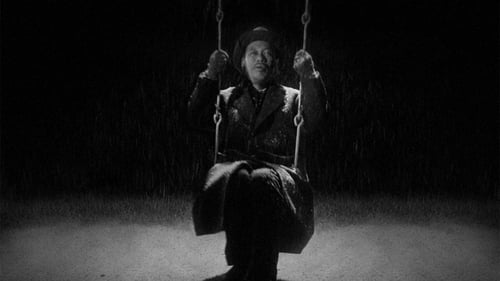
Kimura
Kanji Watanabe es un viejo funcionario público que arrastra una vida monótona y gris; sin embargo, no es consciente del vacío de su existencia hasta que le diagnostican un cáncer incurable. Con la certeza de que el fin de sus días se acerca, surge en él la necesidad de buscarle un sentido a la vida. Y cuando lo consigue se produce un cambio radical en su actitud respecto a los demás.

kikyou - The Return
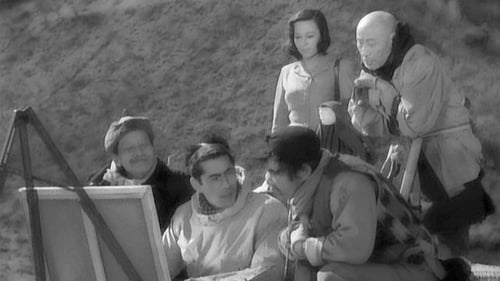
Miyako, una famosa cantante de ópera, es fotografiada junto al pintor Aoe, en un balneario de Izu. La foto es publicada algunas semanas después en el periódico sensacionalista Amor, con un texto totalmente falso. El pintor decide demandar a la publicación y contrata a un ambicioso abogado.

Jiromasa Yoshida
Saheita, the final heir of a once rich and respectable family, can't refuse the many villagers that come to him for favours and money, even though he is on the brink of bankruptcy. Around town he is better known by his nickname Mr. Shosuke Ohara.

Mr. Tai, Mayer
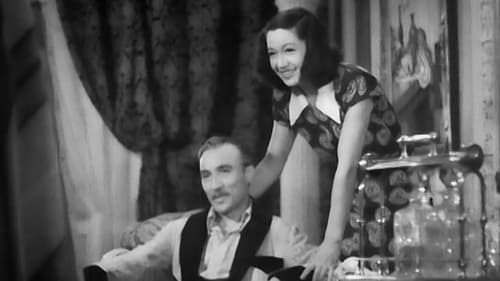
Takehiko Yuri
Tras la Segunda Guerra Mundial y la derrota de Japón, la aristocrática familia Anjo se encuentra arruinada. Para saldar sus deudas deben vender su mansión y deciden celebrar una última fiesta... Uno de los clásicos del cine japonés filmado durante la ocupación americana. Película de tintes sociales realizado por el izquierdista Yoshimura con guión de su cuñado, el luego célebre cineasta Kaneto Shindô. Protagoniza la mítica Setsuko Hara.

The film is set during the days of the scarcity of food after World War II, during which five men ate an elephant that died in a zoo. The elephant's corpse however, was infested with deadly bacteria and the men have only 30 hours left to live...

Ichirôji Sugihara
Waiting woman
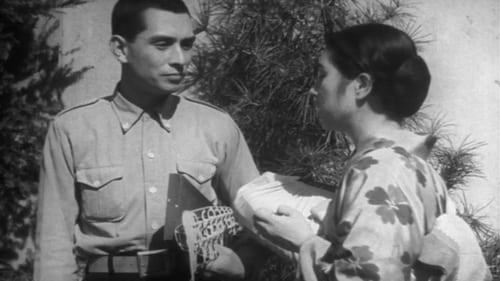
The few residents left on the streets in Tokyo share their individual stories and come to understand the melancholy of saying goodbye.

Hiromasa Nomura World War II era film

Pretty Oshige is deceived by her first love. After this, she lives a hard lifestyle, working at a number of jobs. Her only pleasure is her nephew, who eventually becomes a merchant marine. When Oshige meets her old love ten years later, she is able to forgive him and even thank him for the path her life has taken.

This was 1942, so it was a national policy film, no matter what you call it. But when the war was still on the winning side, there wasn't even a little bit of sadness in the film (as the war was getting worse and worse, the burdens on our backs were increasing day by day, and we had to keep forming a line for tomorrow with nowhere to go (Akira Kurosawa's "The Most Beautiful", Admiral Nomura's "Enemy Air Raid", etc.) (Song of Annihilation, directed by Sasaki Yasushi). The film closes with the hope of the blue cloud that is bubbling up in the air. Or it may be the last time that a Japanese film talks about war and looks at the end of the war with an unconcerned eye.

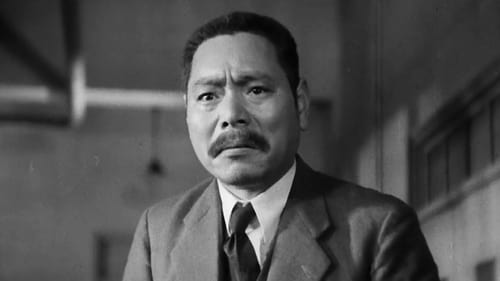
Minoru Uchida
En una ciudad provinciana, un profesor viudo lleva una vida modesta en compañía de su único hijo. Cuando en un viaje escolar, un alumno se ahoga en un lago, él asume la responsabilidad del accidente y dimite. Decide entonces abandonar la ciudad y trasladarse a su pueblo natal. Durante el viaje, padre e hijo discuten sobre el futuro y entre ellos se establece una relación al mismo tiempo cercana y distante. Un día el padre le anuncia que tiene la intención de mandarlo a estudiar a un internado. Años más tarde, el padre trabaja en Tokio y el hijo es maestro. En un encuentro el hijo le anuncia al padre que se va a la guerra.

Mr. Hiroyasu
Emi Ota and her friend Okiku stay briefly at a mountain inn and then return to Tokyo. Later, Nanmura, a soldier on leave, steps on an ornamental hairpin in the public bath at the inn. Emi writes to the inn saying she has lost a hairpin and, when she discovers that it injured Nanmura, returns to apologize. The longer term visitors at the inn meet together to discuss the hairpin incident. These include a grumpy Professor, a young couple Mr and Mrs Hiroyasu, and an old man staying with his two grandsons. They hope to see a romance blossom between Nanmura and Emi, after Nanmura declares that there is something almost poetic in finding a hairpin in the bath.

Doctor
Uta’s mother died when she was six years old; her father she never met. She was forced to adopt a traveller’s life when her grandmother died, and now she is a dancer and part of a family of actors who travel from town to town, setting up street performances. A way of escape from this marginal existence arises when she gets the chance to move to tea merchant Hiramatsu’s place, where she is asked to teach his daughter to dance.

Thief
A spirited young teacher challenges the conservative school employing her with liberal thinking and teaching methods.

Itoda
Adaptation of Kishida Kunio's novel. Set against the backdrop of a power struggle within a hospital, depicts the love lives of the director's daughter, the administrative director, a doctor, and a nurse.

A businessman runs afoul of the law and commits suicide, leaving behind a wife and five children. The eldest son takes the family to Tokyo and labors to restore its name and fortune

Weed with Flowers

Based on the original work by Fumiko Hayashi, this is a story about a woman and two men. The lust is restrained and indifferent. The story even has an elegance to it, which is the charm of the 30 year old Kinuyo Tanaka. There was a time when Tanaka was adorable... Shin Saburi was young and Chishu Ryu was young too. It is a promise of melodrama that the rival or friend is prettier than the heroine Kinyo.

Shunichi
A follow-up to Children in the Wind, Four Seasons of Children(a.k.a. Kodomo no Shiki) is also based on a Tsubota Joji novel. The film is divided into two chapters, following the young protagonists' minor adventures and real-world awakenings over spring and summer, then autumn and winter.
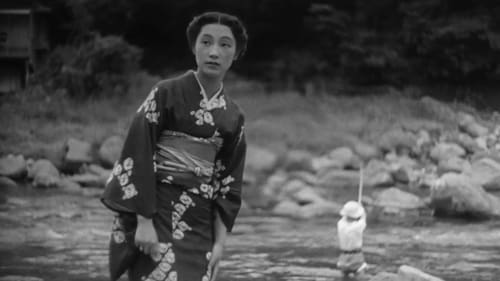
Fukuichi Misawa
Dos invidentes se ganan la vida trabajando como masajistas en varios balnearios. En uno de ellos coinciden con una misteriosa mujer de Tokio, de la que muchos sospechan que es la culpable de los robos que se están produciendo en las posadas de ese balneario. Uno de los dos masajistas se enamora de la mujer...

Futokō
Pre-war Asakusa was a riotous district of cabarets, dance-halls and brothels - a striking backdrop for Shimazu's story of innocence and experience. Pretty, young Reiko is the new dancer in an infamous theatre troupe, and her fellow performers try to protect her virtue in a land of vice. Meanwhile, an ageing actor wants to be a hero off stage as well as on, and the troupe matriarch Marie has to keep them all together.

A 1937 Japanese film.

Mori
During college military training exercises, the bond between two friends and athletic rivals is tested when one of them becomes involved with a woman who may be a prostitute.
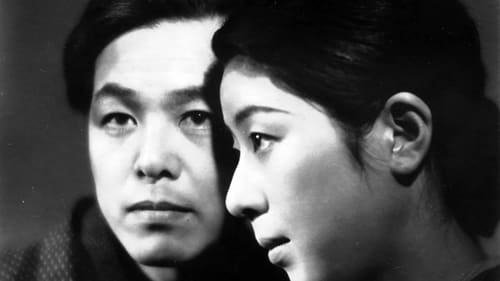
Ryosuke Ninomiya
Una campesina se esfuerza al máximo para que su hijo pueda recibir en Tokio una buena educación. Algunos años después, lo va a visitar, dando por supuesto que será feliz y tendrá una buena posición social. Pero, nada más llegar, se encuentra con la triste realidad: su hijo, que está casado, es profesor de la escuela nocturna y vive sumido en la miseria.

Bantō
A melodrama about a businessman's relations with the three women in his life.
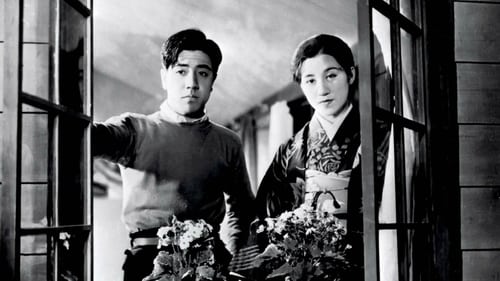
Shinkichi Yamamura
El último film mudo de Naruse cuenta la vida de una camarera, Sugiko, cuya vida toma un brusco giro tras ser atropellada por un rico hombre de negocios.

A melodrama by noted auteur and father of director Yoshitaro Nomura, Hotei Nomura. This is apparently the first adaptation of Izumi Kyoka's The Romance of Yushima.

The story deals with Fuji, nicknamed Waka-danna (Young Master), the star athlete on his university's rugby team. The son of a wealthy soy sauce manufacturer, Fuji basks in the glory of his athletic celebrity. Attracting the attention of admiring young women, Fuji resists family pressure to settle down and marry after college. Instead, he spends much of his time drinking and womanizing, behavior which eventually leads the college officials to expel him from the team.
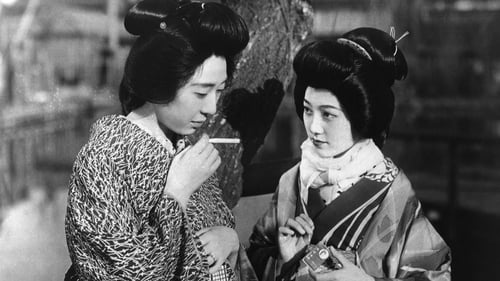
Guest
La vida de una geisha de mediana edad, cuyo adolescente hijo se avergüenza de su profesión, es puesta en contraste con la de una joven compañera, una chica encantadora a la que su familia empujó hacia ese tipo de vida.


Tanuki
This 1932 adaptation is the earliest sound version of the ever-popular and much-filmed Chushingura story of the loyal 47 retainers who avenged their feudal lord after he was obliged to commit hara-kiri due to the machinations of a villainous courtier. As the first sound version of the classic narrative, the film was something of an event, and employed a stellar cast, who give a roster of memorable performances. Director Teinosuke Kinugasa was primarily a specialist in jidai-geki (period films), such as the internationally celebrated Gate of Hell (Jigokumon, 1953), and although he is now most famous as the maker of the avant-garde silent films A Page of Madness (Kurutta ichipeji, 1926) and Crossroads (Jujiro, 1928), Chushingura is in fact more typical of his output than those experimental works. The film ranked third in that year’s Kinema Junpo critics’ poll, and Joseph Anderson and Donald Richie noted that 'not only the sound but the quick cutting was admired by many critics.

Murakawa, writer
Film by Hiroshi Shimizu, featuring an early role for frequent Ozu and Naruse collaborator Hideko Takamine.

A playwright moves to a rural neighborhood to avoid the distractions of the city, but he discovers there are plenty of ways to get sidetracked in his new home, too.

Seki, painter
Michiko gets pregnant after a rape. She marries a boring business partner of her father to avoid the shame. Later she meets the rapist again who is now a union leader in opposition of her husband.

Tetsuo Nomoto, un joven licenciado, intenta en vano encontrar un trabajo digno de sus méritos. Poco después se casa con su novia, Machiko, a quien oculta que no tiene empleo. Las penurias económicas no tardan en hacer mella, lo que fuerza a Machiko a buscar trabajo en un bar. "Me gradué, pero..." duraba originalmente 77 minutos, de los cuales (a fecha de 2013) se conservan exclusivamente entre 11-15. Éstos fueron incluidos en el DVD "The Student Comedies (The Ozu Collection)". (FILMAFFINITY)
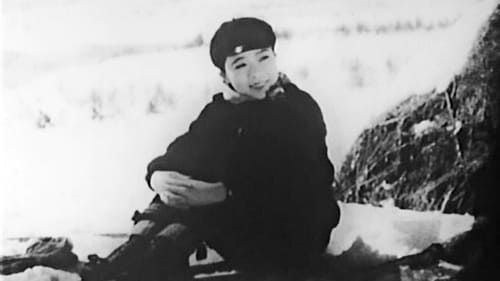
Hatamoto
Students Watanabe and Yamamoto unknowingly compete for the same girl.
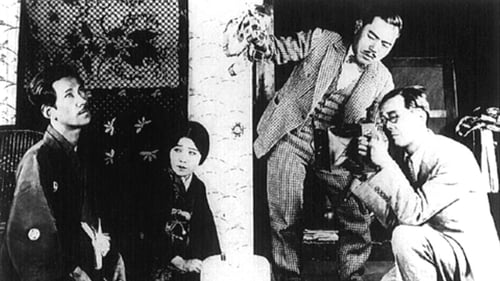
A hen-pecked man works as his artist wife's model and a house-husband. When her patron flirts with her and humiliates him, he decides to get revenge by trying his own hand as a painter. Considered to be a lost film.
